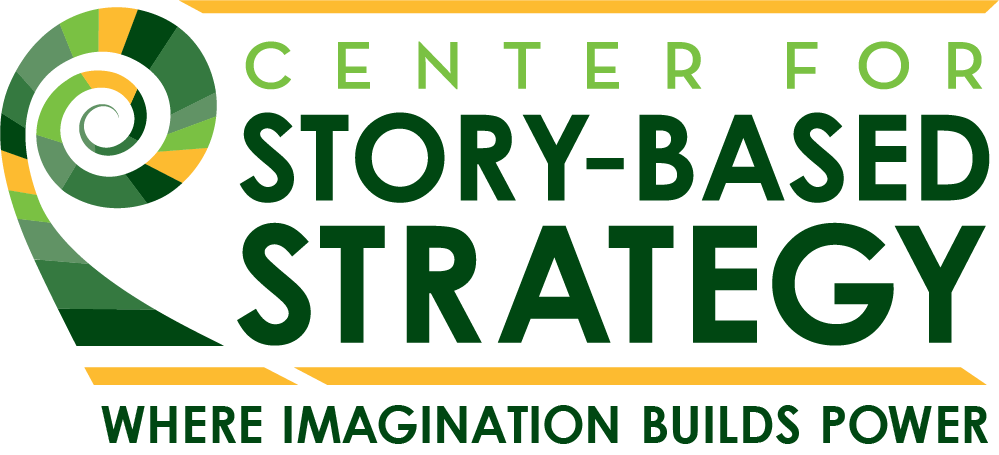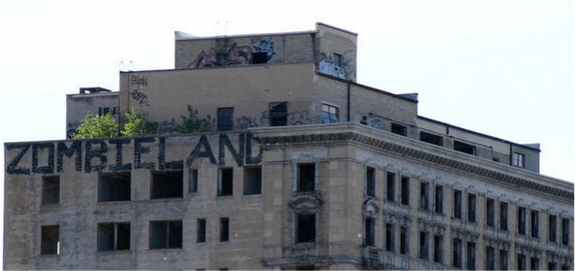It's easier to imagine a zombie apocalypse than imagine the end of capitalism
Zara Zimbardo, superstar and friend of CSS
In recent years zombies and the zombie apocalypse have loomed large in the collective American imagination, in film and television, endless YouTube videos, theme parties and marathons, shooting target companies and survivalist groups, video games and counter-terrorism training, used in course curricula from elementary to college levels to teach topics from geography to public health to sociology, and by the CDC to promote emergency response to viral outbreaks. My chapter, It is easier to imagine the zombie apocalypse than to imagine the end of capitalism, for this year’s Project Censored book examines representations in popular culture, draws out historical connections and diverse monster theories that help us see how we, in the United States in particular, are processing and making sense of systemic social and environmental horror. Focusing on “why monster stories are one of the dominant allegorical narratives used to explore economic life in the United States” takes us underneath macabre aesthetics, campy dramatizations, ironic brain-eating commentary and the undead talent for disturbing graveyard landscaping. As a recurrent monster in the history of capitalism, what does this bizarrely normalized pop culture obsession point to in the "non-human condition" of living death? A drastic fantasy for drastic times, the zombie apocalypse offers a severe “way out”. What apocalyptic futures are we repeatedly rehearsing, and how do they signal both despair of, and hope for, fundamental change? What untold stories do ubiquitous zombie hordes point to? What would you do?
The variations of the contemporary evolution of the zombie apocalypse are worth taking seriously as a dominant mythology of our times, to ask, what are we talking about when we talk about zombies? One view may be to see the high tide of this pop culture trend as a distraction from urgent issues, escapism into scenarios where survivors repeatedly confront the inescapable. However, I would like to argue that shambling zombies and the apocalypse they always bring along with them, provide a forum for speaking about the unspeakable. Zombies as threat and as comedy overlap as “monstrous placeholders”, that point to the gap of what we are not directly talking about, what is censored in the collective conversation. Immersion in prolific undead fiction can steer us to non-fiction that is repressed or blocked from view. Indeed, it is easier to imagine disintegrating cannibalistic corpses covering the planet than to imagine a sustainable shift in our socioeconomic system.
The zombie apocalypse, in its many (re)incarnations, operates to illustrate what we are collectively imagining and may describe what we are actually seeing, from the spectacular to the mundane. Zombies are code for the end of the world as we know it, the total breakdown of society, and the cannibalization of humanity. All societal infrastructure and technologies are shown to be impermanent, fragile, crumbling quickly before the onslaught of the zombie pandemic. As satirist Andy Borowitz recently stated, “I don't usually go in for conspiracy theories, but I believe that Ebola is a plot by a virus to prove that our government agencies are incompetent and our media idiotic.” The undeadly serious zombie virus does this cultural work for us time and time again. In this genre of “survival horror” we are repeatedly shown traumatic liberation from routine lives and livelihoods. The zombie apocalypse is a glimpse of a violent leveling of the social order. It is a massive Control-Alt-Delete. What new human structures and futures emerge is uncertain. Yet they are possible.
“It Is Easier To Imagine The Zombie Apocalypse Than To Imagine The End Of Capitalism” looks at what the zombie metaphor has signified over the past century, and questions why it continues to be so resonant in our culture. I trace the evolution of this undead figure through broad stages of global capitalist expansion, from its origins in New World slavery in Haiti, to American consumerism and militarism, to the networked neoliberal era, in which viral plague anxieties, ubiquitous enemies, apocalyptic scenarios, and near-future dystopian fiction are defining genres of our time. Coming back to haunt us in greater numbers than ever before in this past decade, zombies reflect what is monstrous in a flesh-eating economic system "that seems designed to eat people whole".
Zara Zimbardo is a member of the Interdisciplinary Studies faculty at the California Institute of Integral Studies, and presents critical media literacy workshops in schools throughout the Bay Area. She is a co-founder of the anti-racist feminist resource and training group, the White Noise Collective


